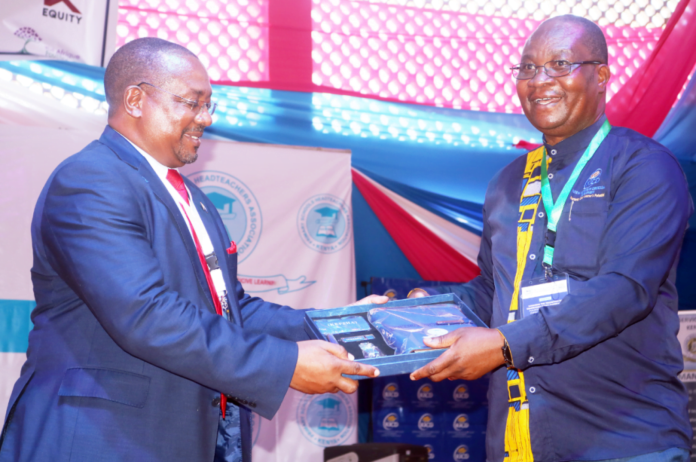The shortage of teachers in educational institutions has emerged as a significant challenge in Kenya. With a burgeoning population and limited resources, traditional methods of addressing this issue have proven insufficient. However, there is a beacon of hope on the horizon. Prof Simon Gicharu, the Chairman of the Kenya Institute of Curriculum Development (KICD), proposes an innovative solution: leveraging technology to enhance distance learning. Let’s delve deeper into this transformative vision and its potential implications.
Quick Summary:
- Prof Simon Gicharu, KICD Chairman, suggests technology as a remedy for teacher shortage.
- Mount Kenya University (MKU) introduces digital teaching screen boards for virtual interaction.
- Embrace of technological transformations crucial for educational evolution.
The Technological Leap
In a recent discourse, Prof Simon Gicharu emphasized the critical role technology could play in mitigating the scarcity of teachers across educational institutions. The burgeoning population, coupled with limited government resources for hiring teachers, poses a formidable challenge. Prof Gicharu proposes a paradigm shift towards utilizing technology to facilitate distance learning, effectively bridging the gap between educators and learners.
Embracing Digital Pedagogy
At the helm of this technological revolution stands Mount Kenya University (MKU), where Prof Gicharu, also serving as the Board Chairman, unveiled a groundbreaking initiative. The acquisition of digital teaching screen boards, a remarkable feat costing Ksh28 million, marks a pivotal moment in educational history. These cutting-edge devices, sourced from China, are poised to revolutionize the traditional classroom experience.
Redefining Educational Landscape
Prof Gicharu envisions a future where conventional “brick and mortar” universities yield to more agile counterparts, embracing virtual platforms for program delivery. This forward-thinking approach not only addresses the pressing teacher shortage but also anticipates the evolving needs of the digital era. By incorporating Artificial Intelligence (AI) concepts and fostering open universities, the educational landscape undergoes a profound metamorphosis.
Empowering Learning Experience
Echoing Prof Gicharu’s sentiments, Prof Deogratius Jaganyi, the Vice Chancellor of MKU, underscores the urgency of embracing the fourth industrial revolution. The introduction of interactive screens heralds a new era of content delivery, fostering dynamic interactions between educators and students. Furthermore, these technological marvels facilitate collaborative research endeavors, nurturing a vibrant academic ecosystem within the university.
Fulfilling the Promise
Dr Marceline Kamande, the Deputy Vice-Chancellor Academic and Research Affairs, highlights MKU’s commitment to harnessing technology for the benefit of over 12,000 online learners. The integration of digital interactive displays promises to enhance the quality of education, transcending geographical barriers and redefining the boundaries of traditional learning.
Potential Impact
The integration of technology into education not only addresses the pressing teacher shortage but also enhances the quality and accessibility of learning. By embracing digital pedagogy, educational institutions like MKU pave the way for a more inclusive and dynamic learning experience. As the world hurtles towards an increasingly digital future, initiatives championed by visionaries like Prof Simon Gicharu illuminate the path towards a brighter tomorrow in education.
